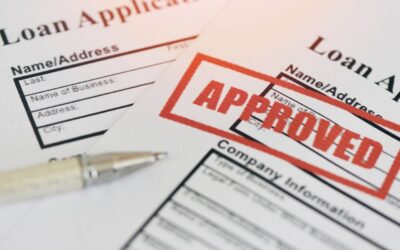When assessing a business’s financial health, particularly for Small Business Administration (SBA) 504 loans, the Debt Service Coverage Ratio (DSCR) plays a pivotal role. This metric is central to the lender’s decision-making process as it measures a company’s ability to generate enough cash to cover its debt obligations, including the SBA loan itself. For an SBA 504 loan, which is designed to support major fixed asset purchases like real estate or equipment, having a DSCR at or above a certain threshold is crucial for loan approval.
To qualify for a loan under the SBA 504 program, borrowers must demonstrate capability to pay back the borrowed funds. This is where the DSCR comes into play; it provides lenders with a quantifiable measure of cash flow sufficiency. Lenders typically look for a DSCR of 1.15 or higher on a historical and/or projected cash flow basis, indicating the business earns $1.15 for every dollar of debt service. Ensuring a DSCR meets the required criteria is just one aspect of the loan application process but is indicative of strong financial management.
Key Takeaways
- DSCR is a crucial determinant for eligibility and approval of SBA 504 loans.
- A ratio of at least 1.15 indicates a borrower’s capacity to cover loan payments.
- Maintaining financial health is essential for businesses seeking SBA financing.
Understanding Debt Service Coverage Ratio in SBA 504 Loans (DSCR)
Debt Service Coverage Ratio (DSCR) is a critical financial metric that we use to assess a borrower’s ability to repay debt. It plays a central role in decisions regarding SBA 504 loans.
Calculating DSCR
To calculate DSCR, we divide a business’s net operating income by its total debt service. Net operating income includes earnings before interest, taxes, depreciation, and amortization (EBITDA), while total debt service encompasses both principal and interest payments that are due within a year.
Formula: DSCR = Net Operating Income / Total Debt Service
Example Calculation:
-
- Net Operating Income (EBITDA): $500,000
- Annual Debt Service: $400,000
DSCR = $500,000 / $400,000 = 1.25
In this example, the DSCR of 1.25 suggests that for every dollar of debt, the company has $1.25 in operating income, indicating a positive ability to cover its debt.
Implications of DSCR in SBA 504 Loans
For SBA 504 loans, the DSCR is a determinant in understanding a company’s financial health and its ability to handle the debt service associated with real estate and equipment financing. The terms of SBA 504 loans, including interest rates, are influenced by the strength of the DSCR, as it reassures lenders that the borrowing entity can honor its debt commitments. A high DSCR can result in more favorable loan terms. Conversely, a lower DSCR indicates higher risk, which can lead to stricter lending conditions or potential loan denial.
Role of DSCR in SBA 504 Loan Eligibility and Approval
The Debt Service Coverage Ratio (DSCR) is a pivotal indicator in determining your eligibility and approval for an SBA 504 Loan. This ratio measures your ability to service debt with your cash flow.
Eligibility Criteria for SBA 504 Loans
For your company to be eligible for an SBA 504 Loan, you must demonstrate your ability to repay the loan. This is where the DSCR becomes essential:
- The DSCR is calculated by dividing your net operating income by your total debt service.
- The SBA requires your DSCR to be at least 1.15 on a historical and/or projected cash flow basis.
- Additionally, your debt service on a global scale, which includes all business debt, must be 1:1 or better.
The DSCR ensures that you have sufficient cash flow to cover your loan payments while maintaining your operational needs.
Impact on Loan Approval Process
A key component in the loan approval process is your creditworthiness, which is significantly reflected in your DSCR. Here’s how the DSCR impacts the process:
- A DSCR of less than 1.0 may suggest that you might not generate enough cash flow to cover your debt obligations, potentially negatively affecting your loan approval.
- Lenders use the DSCR to assess your financial health. A higher DSCR not only improves your chances of loan approval but may also grant you more favorable terms.
- The SBA’s focus is not only on your ability to repay but also on job creation. A strong DSCR indicates that you’re more likely to contribute to economic growth and job creation, aligning with the SBA’s mission.
In summary, the DSCR is a deciding factor for both your eligibility and the likelihood of receiving an SBA 504 Loan. Your financial statements and business plan must clearly demonstrate a DSCR that meets or exceeds SBA requirements to enhance your chances of approval.
Financial Considerations in SBA 504 Loans Beyond DSCR
In ensuring your business’s financial stability while securing an SBA 504 loan, we consider various financial metrics and their interaction with interest rates which play a crucial role in your loan application and repayment strategy.
Other Financial Metrics Considered
When evaluating your SBA loan application, lenders assess multiple financial metrics to determine your overall financial health. Beyond the Debt Service Coverage Ratio (DSCR), they scrutinize your credit score, which reflects your creditworthiness based on your credit history. A high credit score reassures lenders of your reliability in repaying debts.
They also assess your tangible net worth and average net income. Tangible net worth—which calculates our assets minus liabilities and intangible assets like intellectual property—gives lenders insight into your company’s real-world fiscal strength. The average net income over several years showcases your business’s profitability and trends, informing lenders about your long-term financial stability. Together, these figures provide a more comprehensive picture of your capacity to manage additional debt.
The Relationship Between DSCR and Interest Rates
We recognize that your DSCR is intimately linked with the interest rates on your SBA 504 loan. As interest rates represent the cost of borrowing, the higher the rates, the higher your loan payments, which directly affects your ability to maintain an adequate DSCR. Essentially, at higher interest rates, your business needs a stronger cash flow to cover the higher debt service costs, which could squeeze your financial operations. Conversely, lower interest rates ease the pressure on your cash flows, potentially making it simpler for your business to achieve a favorable DSCR.
Strategies for Improving DSCR for SBA 504 Loan Applicants
A robust Debt Service Coverage Ratio (DSCR) is vital for securing a Small Business Administration (SBA) 504 loan. We’ll discuss proven strategies that focus on enhancing your financial performance and crafting a strong 504 loan application to improve the likelihood of loan approval.
Enhancing Financial Performance
Improving your DSCR begins with bolstering your business’s financial health. Key steps include:
- Increasing Net Operating Income (NOI): You can enhance your business’s NOI by either increasing revenues or reducing operating expenses. Consider tactics such as expanding your market reach, introducing new products, or optimizing your pricing strategy.
- Reducing Debt Obligations: You should review all existing debt and negotiate for better terms if possible. Consolidating loans can also streamline repayments and potentially lower interest rates.
- Regular Financial Reviews: Conduct frequent financial analysis to identify and rectify inefficiencies in your operations. You may need to engage with financial professionals who can provide insights and business advice tailored towards sustainable business growth.
Preparing an Effective 504 Loan Application
When we’re preparing your SBA 504 loan application, attention to detail can make a significant difference:
- Thorough Business Plan: You must present a comprehensive business plan that lays out your growth strategy and demonstrates how the loan will contribute to your financial stability.
- Strong Financial Documentation: Maintaining accurate and detailed financial records will ease the application process. This includes profit and loss statements, balance sheets, and cash flow statements.
- Seek Professional Assistance at NSDC: We are here to help you and provide you with invaluable insights. Our experience and knowledge can help navigate the complexities of the application process.
By focusing on these areas, you can put forth a loan application that clearly demonstrates your ability to service the debt, thereby improving your DSCR and chances for approval.
Frequently Asked Questions
What constitutes a good Debt Service Coverage Ratio for an SBA 504 loan?
A good DSCR for an SBA 504 loan is typically above 1.25x. This indicates that the borrowing entity generates sufficient income to cover its debt payments by a margin that is considered safe by lenders.
How does Debt Service Coverage Ratio affect eligibility for SBA 504 loans?
The DSCR is a key determinant of eligibility for SBA 504 loans. If your DSCR is below a lender’s required minimum, usually around 1.25x, your loan application might not be approved because it suggests a higher risk of default.
What is the process for calculating the Debt Service Coverage Ratio for SBA 504 financing?
To calculate the DSCR for SBA 504 financing, divide your business’s annual net operating income by its total annual debt service (the total amount of principal and interest payments for the year). A DSCR higher than one means your business earns more income than its total debt payments.
In what way is debt service in real estate impacted by the SBA 504 loan program?
The SBA 504 loan program, often used for real estate financing, requires a DSCR that reflects the property’s ability to generate enough rental income to exceed its debt service, ensuring the loan is secure and the project is viable.
How critical is the Debt Service Coverage Ratio in the approval process of SBA loans?
The DSCR is one of the most critical financial metrics in the SBA loan approval process. It helps lenders assess the financial health of a business and its ability to repay the loan, significantly influencing the decision to extend credit.
How critical is the Debt Service Coverage Ratio in the approval process of SBA loans?
The DSCR is one of the most critical financial metrics in the SBA loan approval process. It helps lenders assess the financial health of a business and its ability to repay the loan, significantly influencing the decision to extend credit.
Aside from Debt Service Coverage Ratio, what other financial metrics are crucial for securing an SBA 504 loan?
While DSCR is pivotal, lenders also consider other financial metrics, such as loan-to-value ratio, credit history, profitability, and cash flow, when evaluating eligibility for an SBA 504 loan. These metrics give a comprehensive view of a borrower’s financial position.



